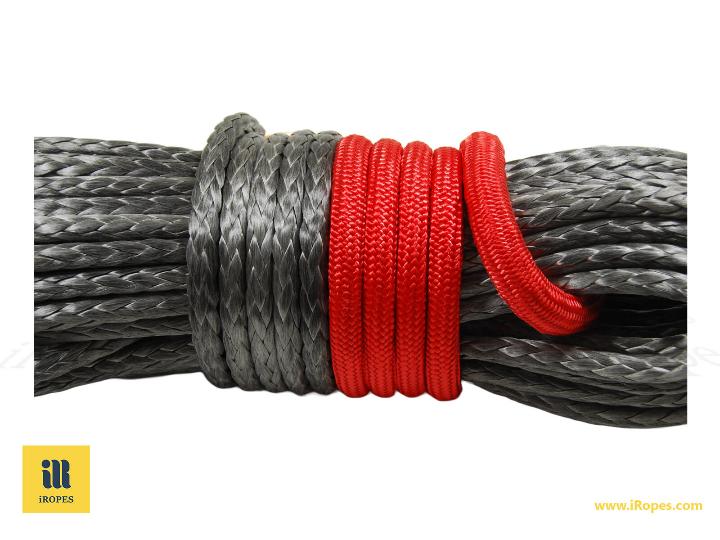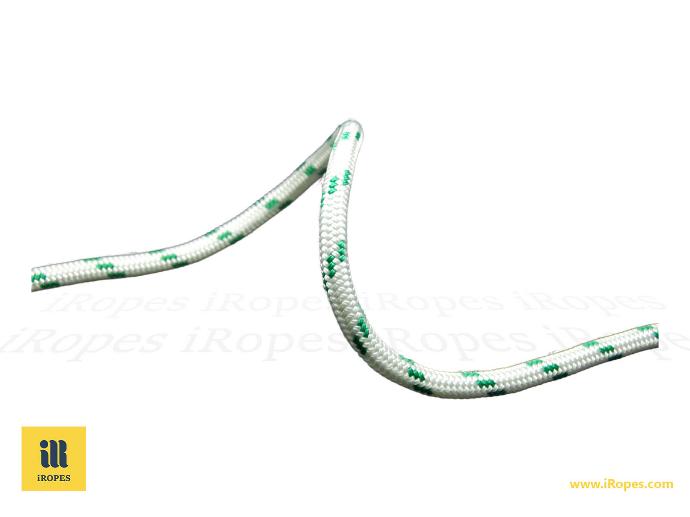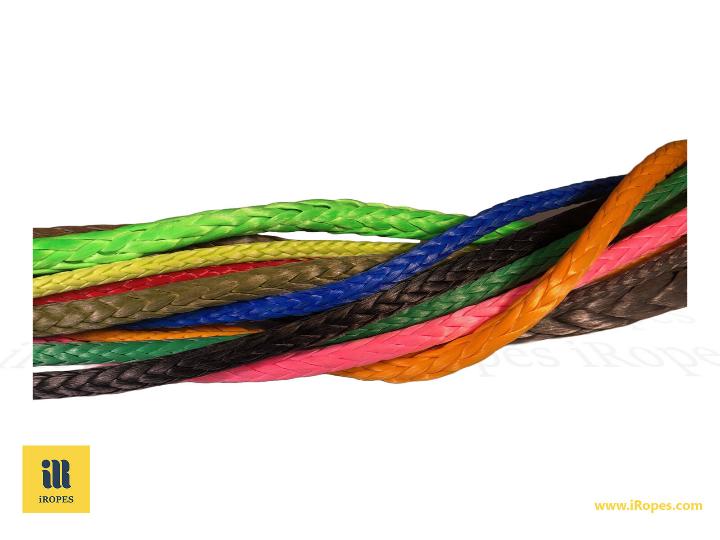Have you ever wondered why choosing the right rope diameter is crucial for your project's success? At iRopes, we've seen firsthand how a seemingly minor decision can make or break an operation. Picture this: a massive cargo ship, caught in a storm, relying on a single rope to keep it secure. The difference between safety and disaster? Just a few inches in diameter.
In the world of ropes, size truly matters. Whether you're dealing with a 1 inch, 2 inch, or 3 inch rope, each diameter brings its own unique strengths and applications. From lightweight hand lines to heavy-duty industrial tasks, the right rope can be your most reliable ally.
At iRopes, we specialise in custom rope solutions, offering a range of diameters to meet your specific needs. Our expertise lies in recommending the perfect rope specifications based on your strength requirements, whether you're looking for dynamic ropes or ultra-high-molecular-weight polyethylene (UHMWPE) options.
In this guide, we'll unravel the mysteries of rope diameters, exploring the unique characteristics of 1 inch, 2 inch, and 3 inch ropes. You'll discover how to match the right diameter to your application, ensuring optimal performance and safety. So, are you ready to rope in success with the perfect diameter choice? Let's dive in!
• Eye splices with silver tube thimble + G80 black hook, 2M black sleeve , end with
eye splice red sleeve .
• Universal drum attachment compatible with most winches.
MATERIAL: UHMWPE
CONSTRUCT: 12-Strands
ELONGATION: 4.80%
Understanding the Significance of Rope Diameter
When it comes to selecting the right rope for your needs, understanding rope diameter is crucial. Rope diameter isn't just a number; it's a key factor that influences strength, performance, and suitability for various applications. Let's dive into why rope diameter matters and how it affects your rope's capabilities.
Measuring Rope Diameter Accurately
Before we explore the impact of rope diameter, it's essential to know how to measure it correctly. Rope diameter is typically measured across the tips of the strands, not the valleys between them. This distinction is important because it affects the rope's actual load-bearing capacity.
Have you ever noticed how a rope feels different when it's under tension? That's because tension can slightly alter a rope's diameter. When measuring, ensure the rope is relaxed to get an accurate reading. For precision, use a set of calipers rather than a ruler - you'll be surprised at the difference in accuracy!
Pro tip: Always measure your rope's diameter in multiple spots and take an average for the most accurate result.
Impact of Rope Diameter on Performance
Now, let's talk about how diameter affects your rope's performance. It's not just about size - diameter plays a crucial role in determining a rope's strength, flexibility, and handling characteristics.
- Strength: Generally, as rope diameter increases, so does its strength. A thicker rope can typically handle heavier loads.
- Weight: Larger diameter ropes are heavier, which can be a consideration for applications where weight matters.
- Flexibility: Thinner ropes are usually more flexible and easier to knot, while thicker ropes may be stiffer but more durable.
- Handling: Smaller diameter ropes are often easier to handle and manipulate, making them suitable for tasks requiring dexterity.

When selecting a rope, consider the minimum diameter requirements for your specific application. For instance, did you know that the minimum rope diameter for load securing is typically 10 mm? Always consult a rope size chart or speak with a rope specialist to ensure you're choosing the right diameter for your needs.
At iRopes, we understand that every application is unique. That's why we offer a range of rope diameters, from lightweight 1-inch ropes perfect for easy handling tasks, to robust 3-inch ropes designed for heavy-duty industrial use. Our team considers your strength requirements and recommends the ideal rope specifications to match your needs.
Remember, choosing the right rope diameter is about striking a balance between strength, weight, and usability. By understanding the significance of rope diameter, you're one step closer to finding the perfect rope for your project. Have questions about which rope diameter is best for your application? Don't hesitate to reach out - we're here to help you make the right choice!
Choosing the Right 1 Inch Rope: A Comprehensive Guide
When it comes to selecting the perfect rope for your needs, size matters - and 1 inch ropes are the unsung heroes of the rope world. They strike that sweet spot between strength and manageability, making them ideal for a wide range of applications. Let's dive into the world of 1 inch ropes and discover why they might be the perfect fit for your next project.
Understanding Rope Types and Materials
Before we get into the nitty-gritty of 1 inch ropes, it's crucial to understand the materials they're made from. Each material has its own unique properties that make it suitable for different uses. Here's a quick rundown:
- Nylon: Known for its excellent strength-to-weight ratio and elasticity, nylon ropes are perfect for applications where shock absorption is key.
- Polypropylene: These ropes float on water and are resistant to moisture, making them ideal for marine environments.
- Polyester: With low stretch and high UV resistance, polyester ropes are great for outdoor applications where stability is crucial.
At iRopes, we offer 1 inch ropes in all these materials, ensuring you'll find the perfect match for your specific needs.
Factors to Consider When Selecting a 1 Inch Rope
Choosing the right 1 inch rope isn't just about the material. Here are some key factors to keep in mind:
- Intended use and environment
- Required strength and load capacity
- Stretch and elasticity needs
- Resistance to UV rays and chemicals
- Handling characteristics and ease of use
Remember, the right 1 inch rope for a boat mooring line might not be the best choice for a climbing expedition. That's why at iRopes, we take the time to understand your specific requirements before recommending the perfect rope solution.
Rope Strength and Safety Considerations
When it comes to rope strength, there's a golden rule to keep in mind: always choose a rope with a breaking strength at least five times greater than the expected load. This safety factor ensures that your rope can handle unexpected stresses and strains.
For example, if you're using a 1 inch rope for a tie-down application with an expected load of 1,000 pounds, you should opt for a rope with a minimum breaking strength of 5,000 pounds. At iRopes, we clearly label all our 1 inch ropes with their breaking strengths, making it easy for you to make an informed decision.
Always inspect your ropes before use and replace them if you notice any signs of wear, fraying, or damage. Safety should always be your top priority!
Whether you need a 1 inch rope for lightweight applications like hand lines and tie-downs, or for more demanding tasks, iRopes has got you covered. Our range of high-quality 1 inch ropes combines strength, durability, and ease of handling to meet all your rope needs.
Ready to find the perfect 1 inch rope for your next project? Explore our range of customizable options and let our team of rope experts guide you to the ideal solution. With iRopes, you're not just buying a rope - you're investing in quality, safety, and peace of mind.
When to Opt for a 2 inch rope
Have you ever found yourself in a situation where a 1 inch rope just wasn't cutting it? That's where the robust 2 inch rope comes into play. Let's dive into the world of these heavy-duty workhorses and explore when they're the perfect choice for your rope needs.
Enhanced strength and durability
When it comes to rope, size does matter. A 2 inch rope packs a serious punch in the strength department. Imagine trying to pull a fully loaded truck out of a muddy ditch - that's where a 2 inch rope truly shines. The increased diameter translates to significantly higher breaking strength, often more than double that of its 1 inch counterpart.
But it's not just about raw strength. The durability of a 2 inch rope is something to behold. I once watched a 2 inch nylon rope withstand weeks of constant use in a busy shipyard, handling loads that would have frayed a smaller rope in no time. The thicker construction means more material to resist wear and tear, giving you a rope that's built to last.
Determining the Right Rope Strength
Choosing the right rope strength isn't just about guesswork. There's a golden rule in the rope world: always select a rope with a breaking strength 2 to 2.5 times the weight you plan to pull or lift. This safety factor ensures your rope can handle unexpected stresses and strains.
Let's break it down with a real-world example:
- Vehicle recovery: If you're looking to recover a 4x4 vehicle weighing 2,500 kg, you'd need a rope with a minimum breaking strength of 5,000 to 6,250 kg.
- Heavy equipment moving: For shifting a 5,000 kg piece of machinery, opt for a rope rated at least 10,000 to 12,500 kg.
Remember, these calculations are just starting points. Factors like dynamic loads (think sudden jerks or drops) can dramatically increase the force on your rope. When in doubt, it's always better to go with a stronger option.
Applications for 2-Inch Ropes
So, where do these beefy 2 inch ropes really come into their own? Let's explore some common applications:
- Vehicle recovery: Whether you're pulling a bogged 4x4 out of mud or towing a stranded truck, a 2 inch kinetic recovery rope is your best friend.
- Marine operations: From mooring large vessels to heavy-duty towing, 2 inch ropes are staples in ports and marinas.
- Construction sites: These ropes excel at moving heavy equipment or securing large loads on flatbed trucks.
- Arboriculture: When you're dealing with massive tree limbs or whole tree removal, a 2 inch rope provides the necessary strength and safety margin.
At iRopes, we've seen our 2 inch ropes put to the test in all these scenarios and more. Our range includes high-quality nylon and UHMWPE options, each tailored to specific industry needs. Whether you're after the shock-absorbing properties of nylon for vehicle recovery or the incredible strength-to-weight ratio of UHMWPE for marine applications, we've got you covered.
Safety tip: Always inspect your 2 inch rope before each use. Look for signs of wear, fraying, or chemical damage. A well-maintained rope is a safe rope!
Choosing the right 2 inch rope is about understanding your specific needs and the unique properties of different rope materials. At iRopes, we're not just selling rope - we're providing solutions. Our team is always ready to help you select the perfect 2 inch rope for your application, ensuring you get the strength, durability, and performance you need.
So, next time you're faced with a heavy-duty task, remember - a 2 inch rope might just be your new best friend. Ready to explore our range of high-quality 2 inch rope solutions? Let's chat about finding the perfect fit for your needs!
The Power of 3 Inch Rope: Strength and Versatility
When it comes to heavy-duty applications, nothing quite compares to the sheer strength and versatility of a 3 inch rope. As someone who's spent years in the maritime industry, I've seen firsthand how these robust ropes can make all the difference in challenging situations. Let's dive into the world of 3 inch ropes and discover why they're the go-to choice for industries that demand uncompromising performance.
Understanding Rope Strength and Tensile Load
Before we explore the applications of 3 inch ropes, it's crucial to understand what makes them so powerful. The strength of a rope is primarily determined by its tensile strength - the maximum load it can bear before breaking. For 3 inch ropes, this strength is off the charts compared to their smaller counterparts.
Factors affecting rope strength include:
- Material composition: Different materials offer varying levels of strength and durability.
- Construction method: The way a rope is braided or twisted impacts its overall strength.
- Diameter: Generally, as diameter increases, so does the rope's strength.
Let's compare the strength of different 3 inch rope materials:
| Material | Tensile Strength (lbs) | Key Properties |
|---|---|---|
| Nylon | 120,000 - 150,000 | High strength, excellent shock absorption |
| Polyester | 100,000 - 130,000 | Low stretch, UV resistant |
| Polypropylene | 80,000 - 100,000 | Floats on water, chemical resistant |
| UHMWPE | 180,000 - 220,000 | Highest strength-to-weight ratio |
It's important to note that the safe working load (SWL) of a rope is typically only 5-20% of its tensile strength. This safety factor ensures that the rope can handle unexpected stresses and strains without risk of failure.
Applications of 3 Inch Rope in Various Industries
The exceptional strength of 3 inch ropes makes them indispensable in numerous industries. Here are some key applications:
- Marine operations: From mooring massive ships to deep-sea towing, 3 inch ropes are the backbone of many maritime activities.
- Construction: These ropes are used for hoisting heavy equipment and materials on construction sites.
- Mining: In underground and open-pit mines, 3 inch ropes assist in moving heavy machinery and equipment.
- Oil and gas: Offshore platforms rely on these ropes for various heavy-duty applications.
I remember a particularly challenging job at a bustling port where we needed to secure a massive cargo ship during a storm. The 3 inch UHMWPE ropes we used didn't just hold - they made the whole operation feel secure, even as the winds howled and waves crashed around us.
Pro tip: When choosing a 3 inch rope for your application, always consider the specific environmental conditions it will face. For instance, if you're working in a marine environment, opt for materials with excellent salt water resistance like nylon or UHMWPE.
At iRopes, we understand that selecting the right 3 inch rope is crucial for your operations. That's why we offer a range of customizable options to meet your specific needs. Whether you're looking for a 3 inch nylon rope for its excellent shock absorption or a UHMWPE rope for its unparalleled strength-to-weight ratio, we've got you covered. You may also want to explore more about the strength of 2 and 1.5 nylon rope solutions.
Remember, proper maintenance is key to ensuring the longevity and safety of your 3 inch ropes. Always inspect your ropes before use, clean them regularly, and store them properly when not in use. By taking care of your ropes, you're not just protecting your investment - you're ensuring the safety of your operations and personnel.
Ready to harness the power of 3 inch ropes for your heavy-duty applications? Explore our range of customizable options and let our team of experts guide you to the perfect solution for your needs. With iRopes, you're not just getting a rope - you're getting a reliable partner for all your high-strength rope requirements.
Choosing the right rope diameter, whether it's a 1 inch rope for lightweight handling, a 2 inch rope for medium-duty tasks, or a robust 3 inch rope for heavy-duty industrial applications, is essential to match strength and usability to your specific needs. iRopes offers a variety of customizable rope options, including our renowned kinetic ropes and UHMWPE ropes, tailored to meet and exceed your expectations. With precise recommendations based on strength requirements, you can trust iRopes to provide the perfect solution for any application, ensuring both safety and performance.
Need Help Choosing the Right Rope Diameter?
Fill in the form above to get personalized recommendations from our rope experts at iRopes. Whether you need a 1 inch rope, 2 inch rope, or 3 inch rope, we're here to help you find the ideal rope for your specific requirements and applications.